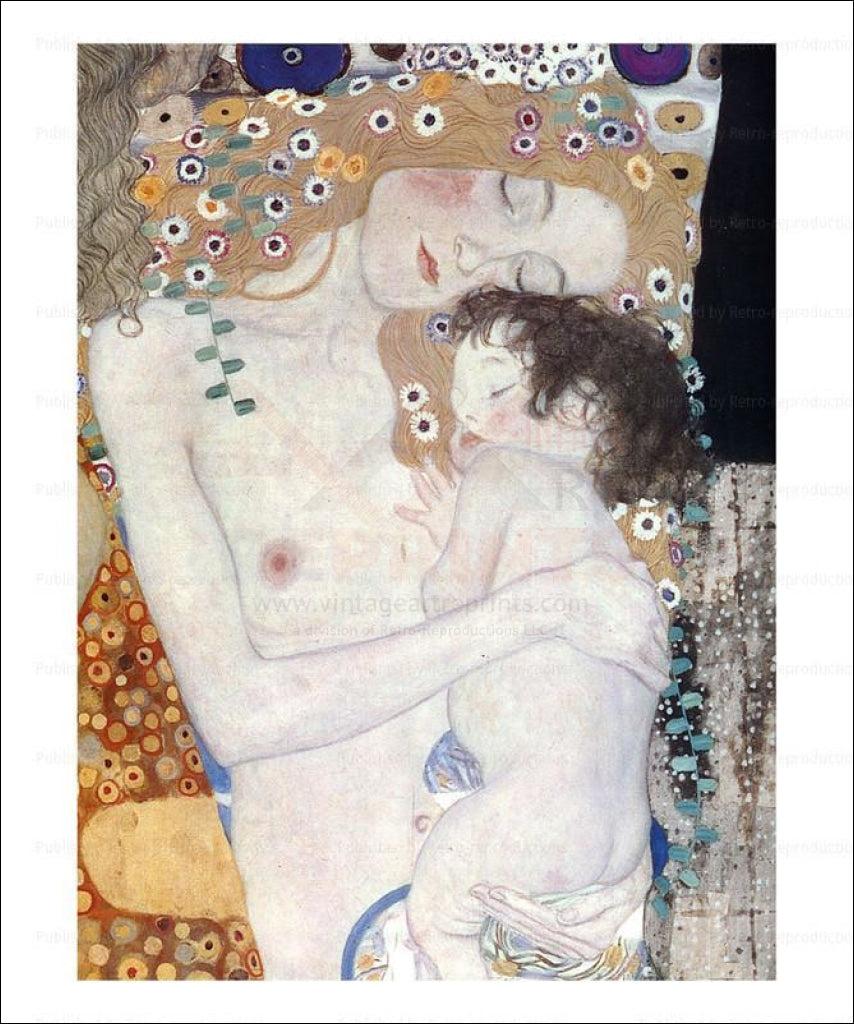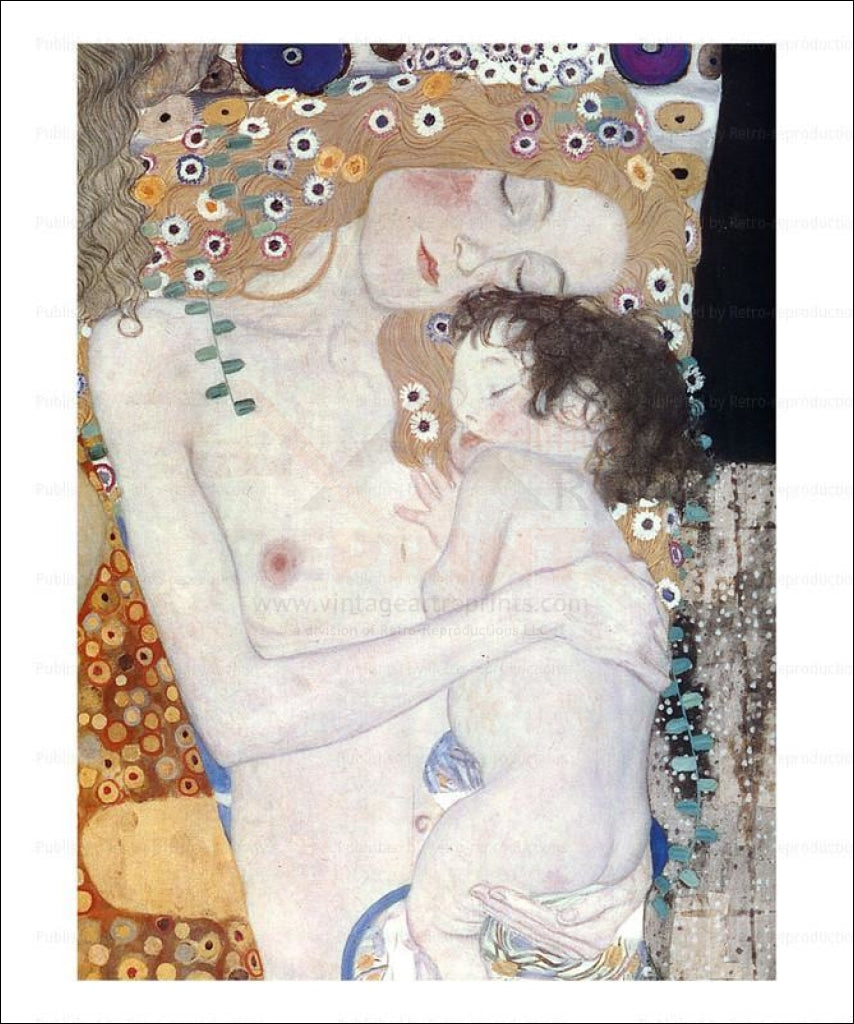1
/
of
1
The three stages of Life, Gustav Klimt
The three stages of Life, Gustav Klimt
Regular price
$39.00 USD
Regular price
Sale price
$39.00 USD
Unit price
/
per
Shipping calculated at checkout.
Couldn't load pickup availability
Share
Klimt's 'Golden Phase' was marked by positive critical reaction and success. Many of his paintings from this period used gold leaf; the prominent use of gold can first be traced back to Pallas Athene, (1898) and Judith and the Head of Holofernes (1901), although the works most popularly associated with this period are the Portrait of Adele Bloch-Bauer I (1907) and The Kiss (1907-1908). Klimt travelled little but trips to Venice and Ravenna, both famous for their beautiful mosaics, most likely inspired his gold technique and his Byzantine imagery. In 1904, he collaborated with other artists on the lavish Palais Stoclet, the home of a wealthy Belgian industrialist, which was one of the grandest monuments of the Art Nouveau age. Klimt's contributions to the dining room, including both Fulfillment and Expectation, were some of his finest decorative work, and as he publicly stated, "probably the ultimate stage of my development of ornament." Between 1907 and 1909, Klimt painted five canvases of society women wrapped in fur. His apparent love of costume is expressed in the many photographs of Flöge modeling clothing he designed.

-
High Quality Reprints
Every piece of art is printed using premium materials. We carefully package and deliver your order to your door.
-
Wholesale Orders
We welcome wholesale inquiries on some of our products. Click here to learn more about our offering.
Sign Up for Our Newsletter
Get a sneak peek on upcoming promos and get 10% off your first order.

